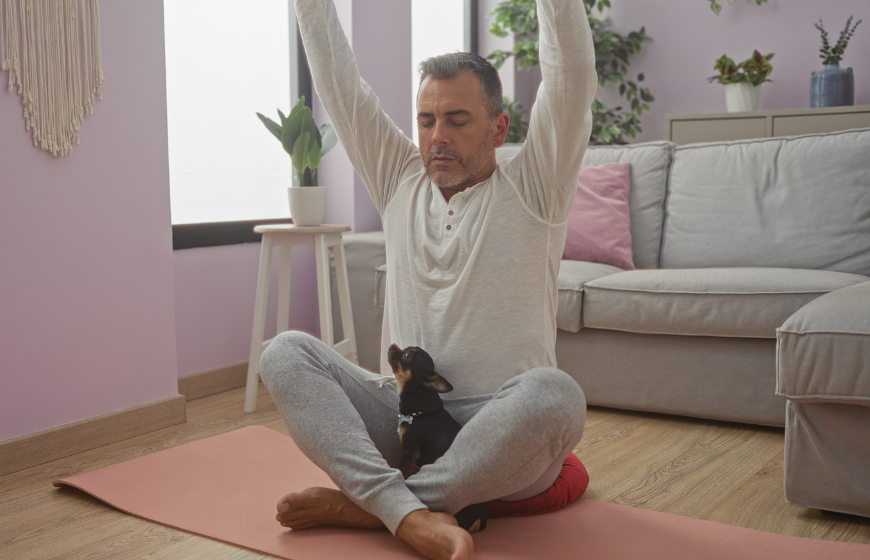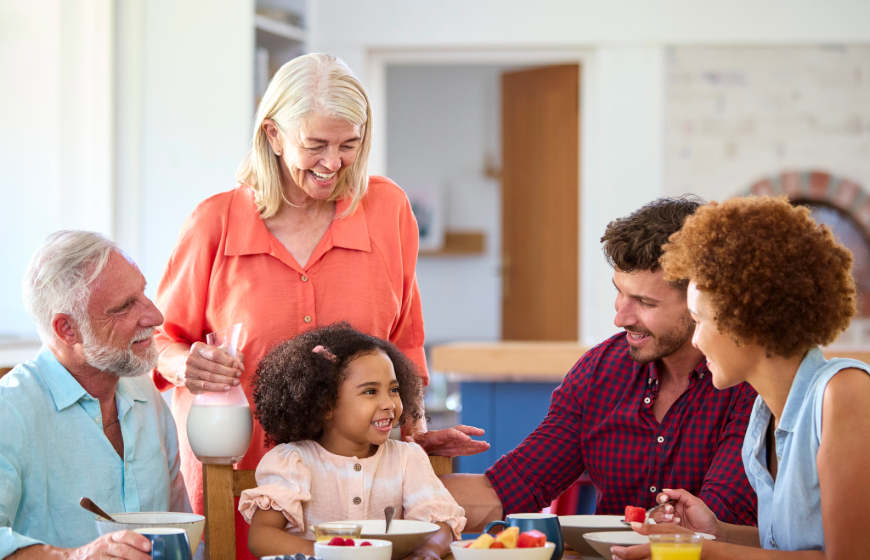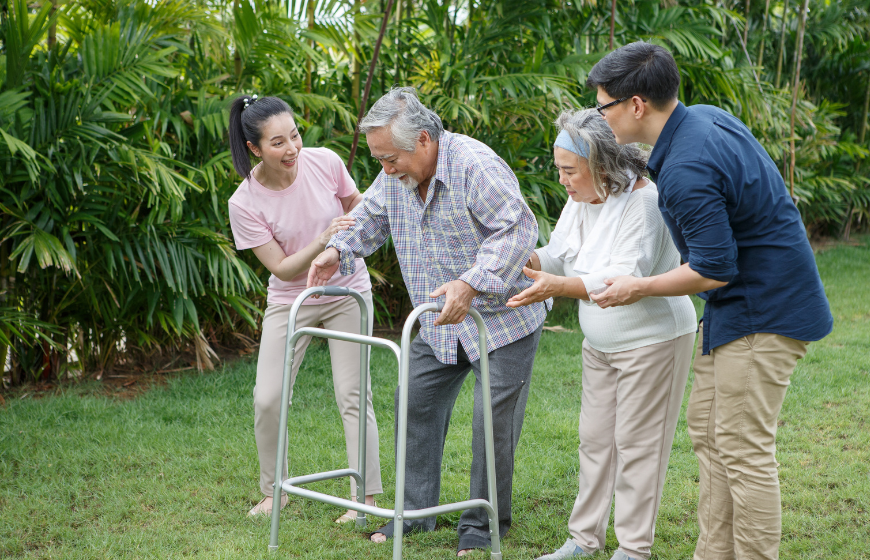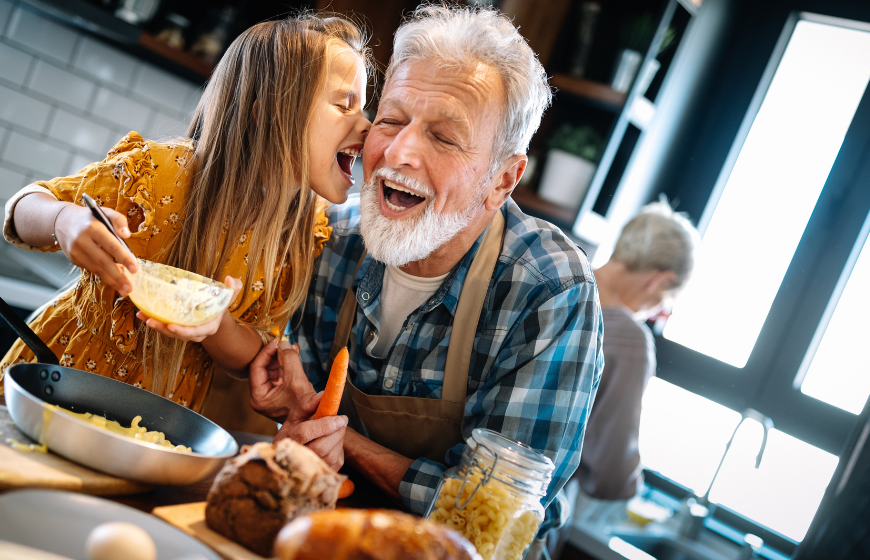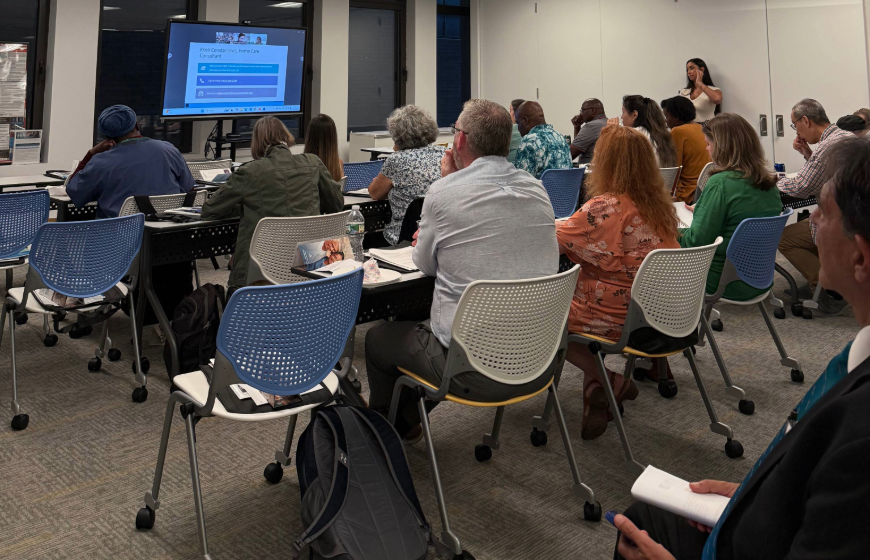If you or someone you love has experienced a fall—or even a close call—you know how quickly life can change. A moment of instability can lead to injuries, hospital stays, and loss of confidence, especially for older adults. And if you or a loved one are also managing chronic conditions or recovering from surgery, falls can be even more serious risks and further complicate your health. That’s why it’s crucial to put fall prevention tips for seniors into action.
Many falls are preventable. With the right support, a few smart changes, and a focus on building strength and confidence, you or your loved one can stay steady, safe, and independent.
Strengthen Stability with Movement
It might sound counterintuitive, but the more we move (safely, of course), the stronger and more stable we become. Gentle, guided movement is one of the most effective fall prevention tips for seniors.
Balance Exercises
Simple balance exercises like standing on one foot (with support nearby), heel-to-toe walking, or gentle tai chi can improve coordination and body awareness. These don’t require fancy equipment. Just grab a sturdy chair or counter for support and commit to doing a few minutes each day.
Stretching
Flexibility matters more than you may think. If you’re stretching regularly, you’re doing the work to keep muscles limber and to improve your range of motion. That makes everyday movements like getting out of bed or reaching for a shelf safer and smoother. Focus on your calves, hamstrings, hips, and lower back for the best results.
Physical Therapy
If you or your loved one has already experienced a fall or feel unsteady on your feet, a licensed physical therapist can make a world of difference. In fact, many home health care services include physical therapy or can coordinate logistics for you to see a physical therapist right in the comfort of your home. These professionals can create personalized exercise plans to help you rebuild strength, reduce your fear of falling, and boost your confidence with every step.
Make Your Home a Safer Place
Your home should be a place of comfort, not a source of risk. A few thoughtful adjustments can reduce fall risks, especially in common trouble spots like your bathroom, stairs, and entryways.
Install Grab Bars and Rails
Grab bars near your toilet, in your shower, and along your stairways provide vital support during everyday movements. They can be especially helpful if you feel unsteady after sitting or standing for long periods.
You might also consider:
- Non-slip mats in your bathroom and kitchen
- Nightlights in hallways and bathrooms to prevent stumbling in the dark
- Railings on both sides of your stairway
- Removing loose rugs or cords that could catch one of your toes or your mobility aid
If you’re unsure where to start, many home health care agencies can assess your home for risks and provide more personalized fall prevention tips for seniors. This helps to identify the most important safety upgrades needed for your unique space.
Don’t Overlook Footwear
Shoes are more than a fashion choice; they’re a vital part of fall prevention. The wrong pair of shoes can increase the risk of slips, trips, and missteps—especially for seniors.
Look for shoes that have:
- Non-slip soles
- Closed toes and heels for extra support
- Low heels and firm soles
- A secure fit (not too tight and not too loose)
Avoid:
- Slippers without grip
- Flip-flops or backless shoes
- Worn-out shoes with smooth soles
If swelling is an issue for you, consider shoes with adjustable straps or Velcro closures. A good rule of thumb: if the shoe slips off easily, it can cause you to slip, too.
Practice Smart Walking Habits
Even with strong legs and safe shoes, mindful walking habits can take you a long way into preventing accidents. Practice these habits (or ask your loved one to) this week:
- Slow down and focus on each step
- Use mobility aids as recommended
- Clear clutter from walkways regularly
- Avoid multitasking while walking, especially with your phone or food in hand
- Watch for uneven surfaces indoors and out (thresholds, curbs, cracked sidewalks, and driveways can be tricky)
And when in doubt, ask for help and more personalized fall prevention tips for seniors. This includes when taking the stairs, carrying groceries, or getting in and out of the car. There’s no shame in leaning on support when you need it.
Know When It’s Time to Ask for Help
Sometimes, no matter how many adjustments we make, the risk of falling still feels too high. That’s when bringing in a little extra help can transform your safety and secure your peace of mind.
Working with a home health care agency means having access to skilled home health aides and registered nurses who are trained to support older adults who are at risk of falling. They can help with daily activities, provide supervised movement, and offer medication reminders or safety checks all in the comfort of your home.
If you’ve been wondering whether it’s time for more support, trust your instincts. Asking for help is not a sign of weakness; it’s a wise act of self-care.
Steady Steps Start Here
Falls can happen fast, and the impact on your health can be serious. But with a few smart steps, you can reduce the risk you or your loved one face and preserve your independence.
From balance exercises and safety accommodations to personalized home health care and recovery support, it’s all about finding practical solutions that fit your needs. Alliance Homecare’s skilled care team is ready to elevate your home care experience and make fall prevention a priority in your care plan today.
Let’s begin your home care experience with a team that puts your safety and peace of mind first and will steady you each step of the way.
